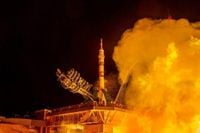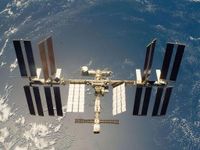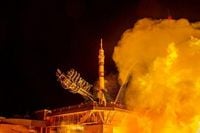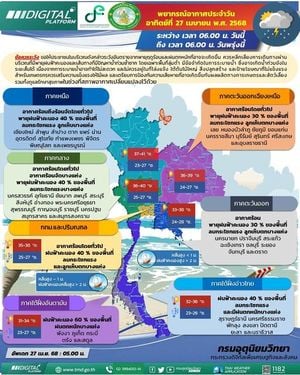The undocking of the piloted spacecraft Soyuz MS-26 from the International Space Station (ISS) is set for April 20, 2025, as confirmed by Roscosmos. This mission will see the return of three crew members, including cosmonauts Alexei Ovchinin and Ivan Vagner, along with NASA astronaut Donald Pettit, who arrived at the ISS on September 11, 2024.
According to the latest reports, the Soyuz MS-26 is scheduled to undock from the ISS at 00:56 Moscow time, with its landing expected at 4:17 Moscow time on the same day. This mission has been part of ongoing international cooperation in space exploration, which highlights the collaborative spirit of space agencies around the world.
On April 8, 2025, the ISS welcomed a new crew aboard the Soyuz MS-27 spacecraft. This vessel brought cosmonauts Sergei Ryzhikov and Alexei Zubritsky, as well as NASA astronaut Jonathan Kim, to the station, marking a continuous rotation of personnel aboard the ISS.
Currently, the ISS is home to a total of ten individuals. This group includes six representatives from Roscosmos: Sergei Ryzhikov, Alexei Zubritsky, Alexei Ovchinin, Ivan Vagner, and Kirill Peskov. Additionally, there are four astronauts from NASA: Donald Pettit, Ann McClain, and Nicole Ayers, alongside Takuya Onishi, an astronaut from the Japan Aerospace Exploration Agency (JAXA).
The upcoming undocking and landing of Soyuz MS-26 will mark another significant milestone in the ongoing partnership between international space agencies. As space missions continue to evolve, the collaborative efforts of nations highlight the importance of shared knowledge and resources in exploring the final frontier.
Roscosmos has emphasized the importance of this mission, noting that it not only fulfills the logistical needs of the ISS but also contributes to scientific research and international cooperation in space. The return of the Soyuz MS-26 crew will also provide valuable data and experiences that can benefit future missions.
As the world watches, the successful operation of the Soyuz MS-26 mission will serve as a testament to the advancements made in space travel and the enduring spirit of exploration that drives humanity forward. The crew’s safe return will be celebrated not just as a national achievement for Russia, but as a victory for all nations involved in space exploration.
In recent years, the ISS has served as a platform for numerous scientific experiments, technological advancements, and international diplomacy. The collaboration between NASA, Roscosmos, and other space agencies has fostered a unique environment where scientific discovery thrives, and cultural exchanges occur among astronauts from different countries.
As the date approaches for the undocking of Soyuz MS-26, preparations are underway to ensure a smooth transition for the returning crew and the incoming personnel aboard Soyuz MS-27. Ground teams are meticulously planning every detail, from the undocking sequence to the landing procedures, to guarantee the safety and success of both missions.
With the undocking of Soyuz MS-26, the ISS will continue to function as a hub for scientific research, allowing astronauts to conduct experiments that would be impossible on Earth. The ongoing presence of diverse international crews aboard the station underscores the collaborative nature of modern space exploration.
The upcoming events surrounding the Soyuz MS-26 mission will not only showcase the technical prowess of the participating space agencies but also highlight the shared commitment to exploring the cosmos and advancing human knowledge. As the crew prepares for their return, the world eagerly anticipates their safe landing and the stories they will bring back from their time aboard the ISS.
As humanity looks to the stars, missions like Soyuz MS-26 and MS-27 will continue to pave the way for future exploration, inspiring generations to come. The legacy of these missions will resonate far beyond the confines of the ISS, influencing the next steps in our quest to understand the universe.







